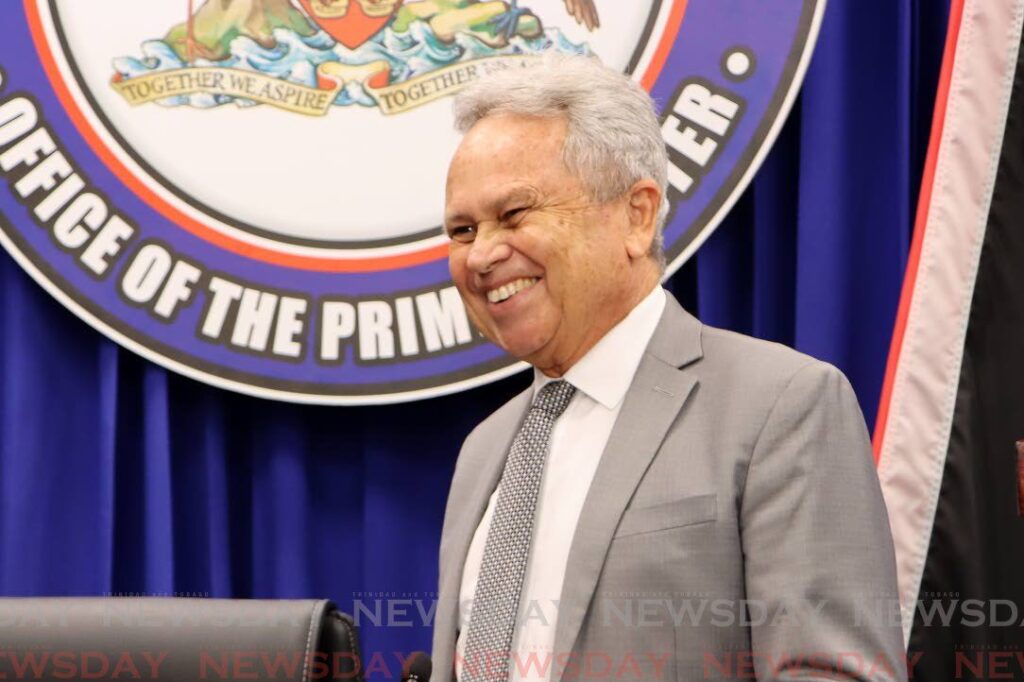Finance Minister free to continue staffing Revenue Authority

ATTORNEYS for the Public Services Association (PSA) are expected to approach the Privy Council to temporarily stop a move by Finance Minister Colm Imbert from staffing the Trinidad and Tobago Revenue Authority (TTRA).
An urgent application was expected to be filed on July 4, hours after Court of Appeal judges Mark Mohammed, Charmaine Pemberton and Mira Dean-Armorer held they were not persuaded to invoke what is known as the “slip rule.” This is a process provided for by the civil proceedings rules which allows a court to “correct” a slip or omission in a judgment or order.
On June 26, the PSA’s legal team, led by former attorney general Anand Ramlogan, SC, sought an urgent hearing asking the Court of Appeal to “correct” its June 11 order to specifically direct a stay of the implementation and operationalisation of section 18.
The section gave public officers – some 1,200 – three months to decide on their future employment on the operationalisation of the TTRA. Those affected had the choice to resign from the public service, accept a transfer to the TTRA or be transferred to another office in the public service.
President Christine Kangaloo proclaimed the act on April 24, 2023.
Initially, the deadline for employees of the Board of Inland Revenue (BIR) and the Customs and Excise Division (CED) to choose one of the options given to them was July 31, 2023. There were at least five other extensions, with the last being July 31. This drew the ire of the PSA after letters were sent out to BIR and CED staff on June 25 to exercise their option, although a limited stay was in effect.
On June 4, the judges granted the limited stay until September 25. This order was made at the hearing to grant conditional leave to the PSA to take its challenge of the constitutionality of the TTRA Act to the Privy Council.
When the limited stay was granted, the judges said at the time it made sense to temporarily preserve the status quo, as it would be conducive to the ease of administration in the public’s interest, while mindful of the administration of justice.
Senior Counsel Douglas Mendes, who represents the minister, said after receiving the perfected order from the court (which is an order that is complete) – based on the PSA’s draft order – the parties brought to the court’s attention what they believed the intention to be.
“The fact is, the parties had a particular understanding of your intention and applied for the correction.
”But then the court says, ‘No, the order is what we intended.'”
This, he said, was a stay of the Appeal Court’s ruling in the PSA’s substantive appeal on May 28.
On May 28, Justices of Appeal Nolan Bereaux, Pemberton and Dean-Armorer dismissed the challenge, which High Court judge Westmin James initially rejected in November 2023. They held the TTRA Act was constitutional.
On July 4, Mendes said that on June 14, when the court said there was no error in its June 11 order, “The State got advice and was told the order did not prevent the operationalisation of section 18.
“It is irrelevant what the parties thought the court order to be.”
He was adamant the rules did not allow the Appeal Court to apply the slip rule and the panel had made clear its order was staying the order of the Court of Appeal (on May 28).
“There was no accident, slip or omission. You are functus (officio).”
The doctrine of functus officio ("having performed the office") holds that once an arbitrator gives a decision on an issue, he or she has no power to re-examine that decision.
Mendes also took issue with Ramlogan’s assertion that the minister “stole a march, bringing the administration of justice into disrepute by taking advantage of the workers by exploiting a loophole.”
In his submissions for the court to invoke the slip rule, Ramlogan referred to the exchange of e-mails among attorneys for the State, his team and the court’s registrar.
“My position is clear: the court granted a stay…We are saying it had to be the implementation of section 18.
“That being the joint understanding, the wording of the order contains a clerical error or mistake. It simply does not reflect the intention and the purpose for which the interim relief was granted…This is an exceptional circumstance which falls squarely in the slip rule.
“Something had to be stayed. It could only be the implementation of section 18.
"Regardless of what was contained in the draft order, what is relevant is what the court decided and what the court pronounced in open court.
“I could have come for an application for contempt, but I came to ask for the order to be corrected...
“We are looking bad. What kind of banana republic are we?”
In their ruling, the judges held that the status quo on May 28, when the Appeal Court delivered its ruling, was that the TTRA Act was constitutional and posed no impediment to implementation by the State.
Mohammed, who delivered the oral decision on July 4, said the judges considered the submissions made at the conditional leave hearing and the court's comments. He said the only “insertion” they could “possibly make” would be “an interim order preserving the status quo as it obtained on May 28.”
He said the PSA’s draft order – which is required by the CPR in any application – did not specifically ask for a stay of section 18 of the TTRA Act.
The Privy Council will hear the PSA’s substantive appeal on July 18.

Comments
"Finance Minister free to continue staffing Revenue Authority"